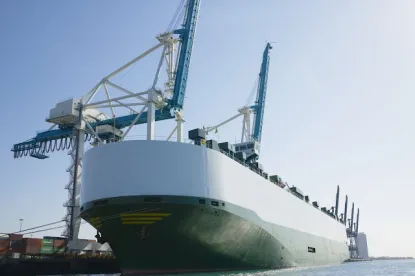In Petrobras America, Inc. v. Vicinay Cadenas, S.A., 815 F.3d 211 (5th Cir. 2016), the Fifth Circuit considered whether the general maritime law, or corresponding state law, applied to claims that arose on the Outer Continental Shelf in the context of oil and gas exploration and/or production. This case arose from an incident involving the alleged failure of an underwater tether chain, which connected wellheads to a floating production storage and offloading facility ("FPSO") in the Gulf of Mexico. The chain ruptured, causing the riser to fall to the seafloor, thereby severing the connection between the wellhead and surface and causing loss of the riser system, loss of use of the FPSO facility, and lost production.
In the district court, the court found that the general maritime law barred claims for economic loss when the only physical damage resulting from the incident is to the product itself. On appeal, the Fifth Circuit reversed, finding that the general maritime law did not apply and that, instead, the law of the adjacent state applied under the Outer Continental Shelf Lands Act.
For maritime law to apply, the incident must occur on navigable waters and must be substantially related to maritime activity. The Fifth Circuit did not address the location element because it found that the separation of the chain and subsequent effect on the riser was not substantially related to maritime activity; specifically, the court found that it did not have the potential of disrupting maritime commerce. The court held that the involvement of the FPSO, although it was legally a vessel, did not have an impact on maritime commerce because the FPSO was permanently moored. Additionally, the Fifth Circuit found that release of a buoyancy can to the surface of the Gulf of Mexico during the event in question only created a de minimus potential of impacting maritime commerce. The court also relied upon several prior Fifth Circuit cases in holding that oil and gas production and exploration has consistently been held not to constitute traditional maritime activity.
The Fifth Circuit's ruling may provide further uncertainty on the application of the general maritime law to oil and gas activities involving vessels on navigable waters. In addition, in many traditional maritime cases, including those involving products liability claims, defendants successfully utilize the general maritime rules limiting the recovery of economic damages to only those parties that have suffered physical damages. This defense limits the potential exposure of maritime defendants by not only reducing the amount of potential damages but also precluding certain classes of plaintiffs from recovery. While each case will certainly depend on its own facts, the Fifth Circuit’s recent ruling may hamstring the availability of this defense in certain lawsuits involving oil and gas production and exploration. It is important to recognize the legal interplay of state and maritime law in the oil and gas industry to ensure that adequate insurance is in place to protect against potential losses. As always, Jones Walker will continue to monitor this issue and all issues that may potentially impact our clients and will provide updates in future newsletters should there be any further developments with regard to this issue.



 />i
/>i

